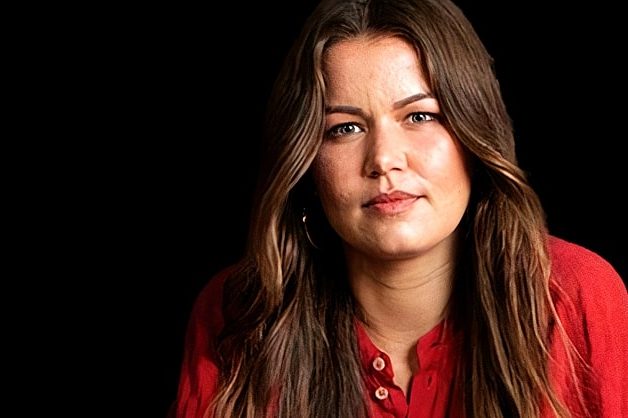

The federal Health Minister, Mark Butler, is leading these de facto prohibition changes. If the Senate bill is passed, Australia’s eight state and territory parliaments will each have to pass corresponding legislation. If they don’t, the survival of Australia’s restrictive approach to vaping is doubtful.
Australia began restricting nicotine vaping, a much safer way of taking nicotine than deadly smoking, in 2011. Since then, when evidence of policy failure has become apparent, Labor and Coalition governments have intensified the policy rather than consider other reasonable policy options.
At the heart of this international tobacco control debate, harm reduction supporters are challenging advocates of abstinence from tobacco (and even nicotine) to allow safer nicotine options to be added to conventional tobacco policy.
In the last 20 years, the estimated global number of smokers of cigarettes only declined from 1.3 billion to 1.2 billion. But reduced-risk products, including vaping, captured almost 10 per cent of the global share of the smoking market.
Twenty one thousand Australians and eight million people worldwide die from smoking-related conditions every year. In stark contrast, there has not yet been a scientifically attributed death from a much safer nicotine product.
There were 281 submissions to the recent Federal Senate Inquiry into the bill. But it is not widely known that 236 submissions opposed the bill. This is in part because of unambiguous scientific evidence about the efficacy of vaping as an aid to quitting smoking cigarettes, and its significant harm-reduction effects relative to smoking combustible cigarettes.
Mr Butler’s Draconian approach to vaping has already forced a number of legitimate vaping businesses catering only for adults to close. Other outlets will follow when their current stock runs out. While it was previously legal for adults to import three month’s supply of vapes at a time, from March 1 such personal importation was also banned. Because there was no need for legislative change, this only required making amendments to TGA regulations.
Much of the damage has already been done. But, if passed, Butler’s current legislative component will make things even worse. As leading WA vaping advocate Pam Mulholland points out, “What remains of this innovative harm reduction industry (which is reaching its public health aims in New Zealand’s age-restricted regulated consumer market) will be criminalised.”
Since NZ began regulating vaping in 2020 aiming to make nicotine vaping more available than cigarettes, the NZ adult daily smoking rate has almost halved. That is roughly double the rate of the decline in Australia’s smoking rate over the same period. The adult daily smoking rate in NZ is expected to soon dip below five per cent, which is regarded as the elimination of smoking.
NZ does not have a vaping black market. Yet only about 10 per cent of the Australian vaping market is supplied legally, with the remainder supplied by a flourishing and increasingly violent black market. Since 2023, in Australia criminal gangs fighting for control of this lucrative trade have set fire to more than 80 tobacconist and vaping shops, three people have been shot to death in public and extortion of tobacconist and vaping shops has become rampant.
Youth vaping in NZ may be starting to decline. But youth vaping is much more common in Australia where the vaping black market is only too happy to supply customers of any age. It is reliably estimated that in 2024 Australia will lose more than $12 billion in government revenue over the next four years as smokers buy from the cigarette and tobacco black market.
In Australia there are about 1.7 million adult vapers, with numerous reports of vapers returning to smoking because it’s so much easier, and much cheaper to buy from the black market.
The vape black market is set to expand exponentially if the legal supply is restricted further. The recent acceleration in decline of Australia’s adult daily smoking rate has been helped by an increase in vaping thanks to the largely black market supply responding to growing demand. Should Australia celebrate a public health gain achieved by unlawful activity in defiance of government policy? The bankruptcy of Australia’s approach is demonstrated by comparing the outcomes of our hardline approach with pragmatic NZ.
Australia can also learn a lot from Sweden where snus, a moist oral smokeless tobacco with minimal adverse effects is widely available. Snus became popular first among Swedish men a few decades ago and then more recently among Swedish women. When it joined the European Union in 1992,Sweden negotiated an exemption to keep snus legal.
In contrast, Snus is banned in every other European Union country. Sweden’s adult daily smoking rate is now only 5.6 per cent and likely to drop below five per cent very soon. This will make Sweden the first country to have effectively eliminated smoking. Compared to men in all other European Union countries, Swedish men have by far the lowest rate of cigarette smoking, smoking-related diseases and smoking-related deaths.
If the proposed Therapeutic Goods and Other Legislation Amendment (Vaping Reforms) Bill 2024 is passed, high youth vaping rates, only a slow decline in adult smoking, a violent and expanding vape black market and haemorrhaging government tax revenue will be the dismal legacy of Health Minister Butler and the Albanese government.
The most sensible approach would be for vaping products to be legalised and regulated in the same way as cigarettes. A predominantly regulated market provides the only hope that strict police prevention of underage purchasing of vapes could be reduced. Senior police have made it clear in recent parliamentary enquiries that enforcement of vaping laws is a very low priority for law enforcement.
Veteran drug harm reduction advocate, Dr Alex Wodak AM argues: “There are four groups that really matter in this policy issue. As we saw when needle syringe programs were introduced in the 1989s to slow HIV spread among and from people who inject drugs, drug users generally switch from higher to lower-risk options when given the opportunity.
“First a trickle change and then a flood. Producers are also starting to transform from combustible cigarettes to reduced-risk products. Philip Morris International, the world’s largest traded tobacco company, now earns about 40 per cent of its revenue from reduced-risk products compared to less than one per cent in 2015.
“Increasingly, tobacco companies realise that the cigarette is obsolete. If a tobacco company does not transform, it will not survive. Investors, the third group, recognise this as the faster tobacco companies are transforming, the higher their share price. The fourth group, abstinence oriented tobacco control, is fighting to prevent the inevitable disruption of the nicotine market from one delivered by smoke, causing eight million deaths worldwide every year, to another which is not harmless but is delivered at much lower risk.”
Promising to eliminate a disliked form of drug use often works well politically for a while. But eventually many begin to realise that severely restrictive abstinence approaches usually fail, while at the same time producing nasty collateral damage. The evidence is now abundantly clear. The remaining question is whether our politicians are ready to accept that evidence.
In the Senate, the Green vote will be critical. I am reliably informed that they will move some amendments and that, if accepted, they will support the bill.
As it happens, adults who vote Green have a higher vaping rate than voters for any other party. So it is likely that a Greens vote for Butler’s vaping bill will incur a cost in terms of loss of some votes.
Pity the Greens politician who has to explain why cannabis should be regulated while vaping should be criminalised!
Ross Fitzgerald AM is Emeritus Professor of History and Politics at Griffith University. His most recent books include a memoir, Fifty Years Sober: An Alcoholic’s Journey and the four boxed set, The Ascent of Everest: The Outrageous Adventures of Grafton Everest, co-authored with Ian McFadyen.
Who can be trusted?
In a world of spin and confusion, there’s never been a more important time to support independent journalism in Canberra.
If you trust our work online and want to enforce the power of independent voices, I invite you to make a small contribution.
Every dollar of support is invested back into our journalism to help keep citynews.com.au strong and free.
Thank you,
Ian Meikle, editor









Leave a Reply